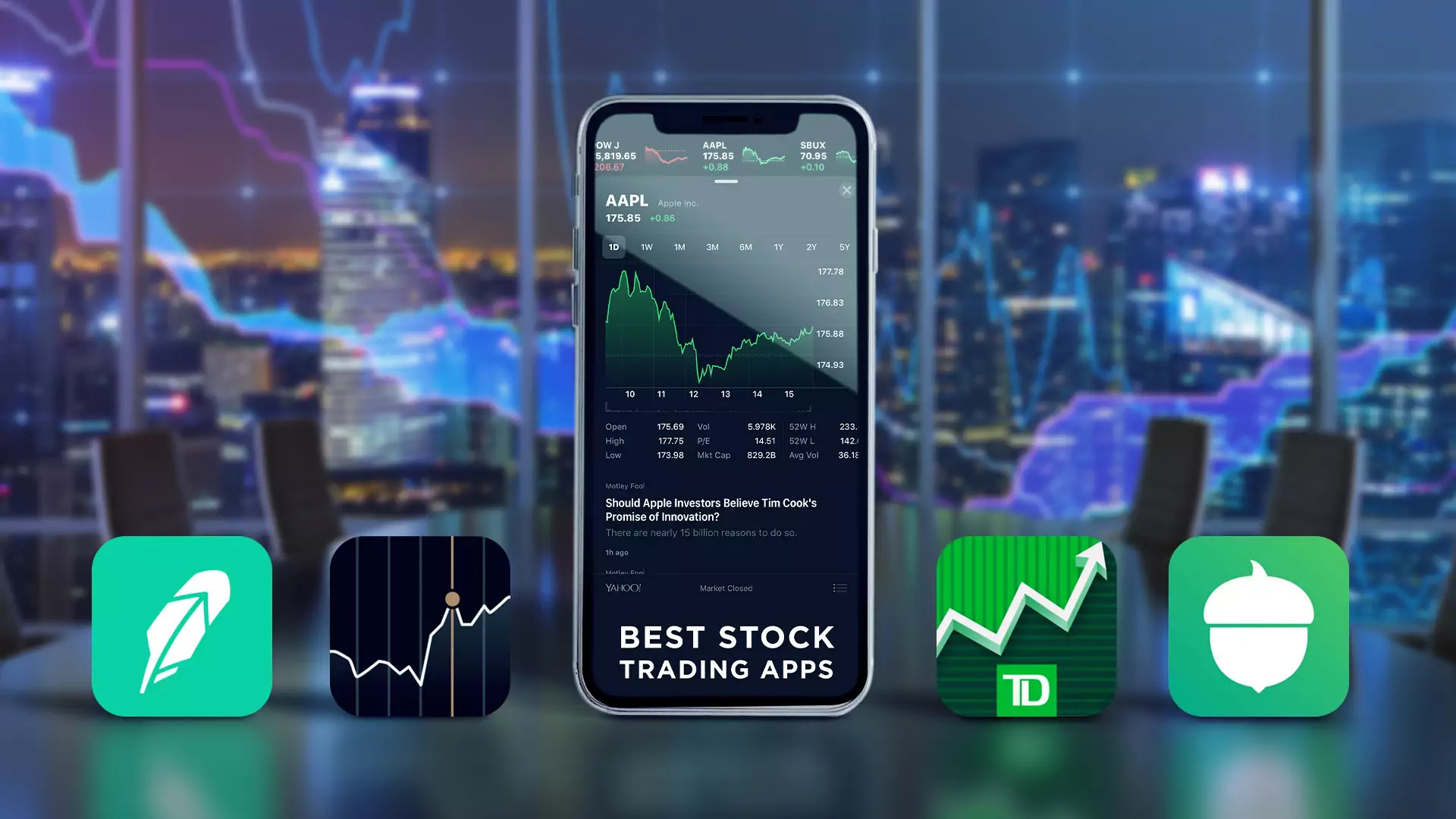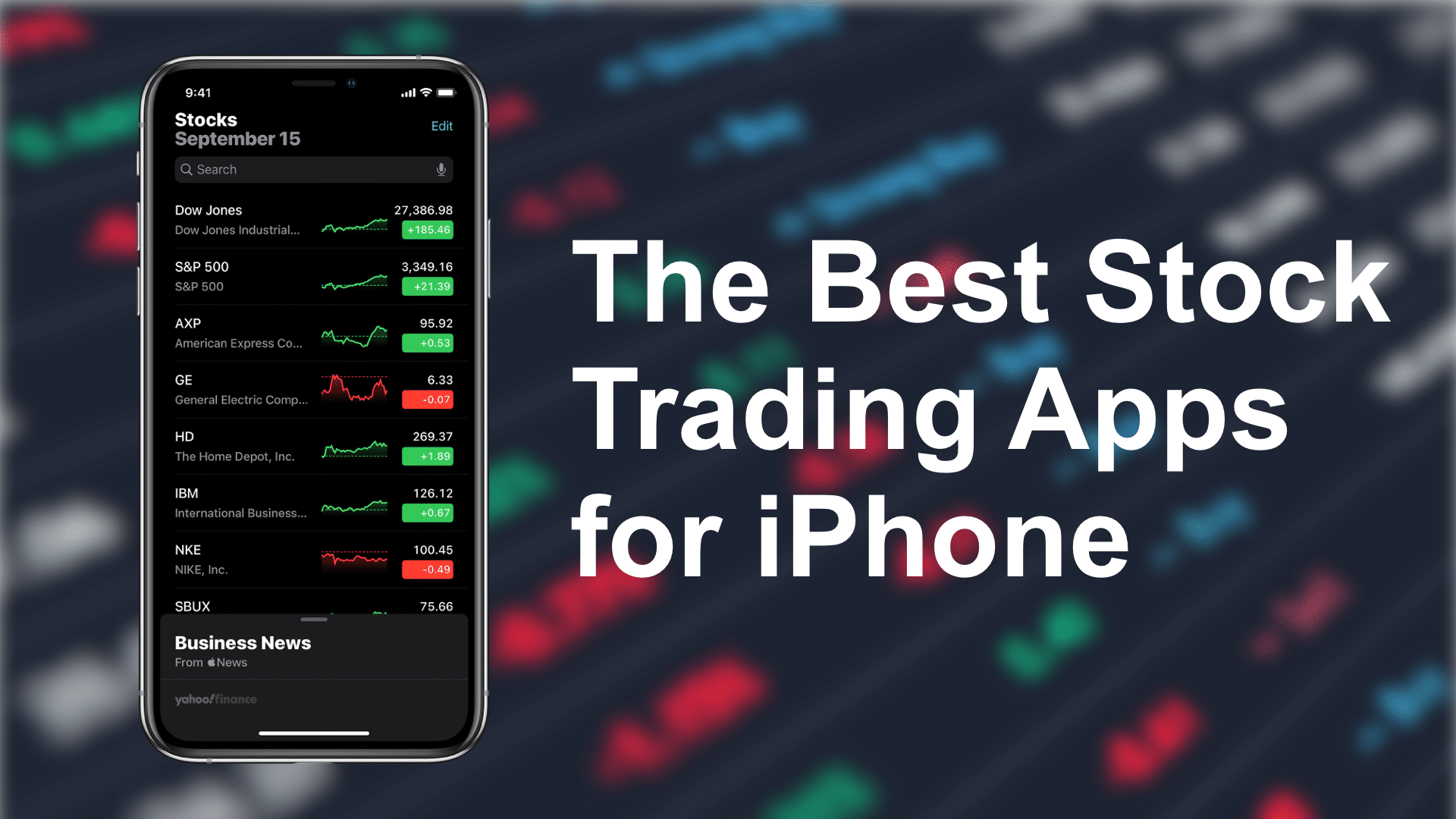Stock trading apps have revolutionized the way individuals access and manage their investments, offering a plethora of features and functionalities that cater to traders of all levels. From real-time stock quotes and charting tools to advanced trading strategies and portfolio management, these apps empower users to make informed decisions and maximize their financial potential.
As the stock market continues to evolve, so too do the capabilities of stock trading apps. This guide will delve into the intricacies of these powerful tools, exploring their features, types, security measures, and the latest trends shaping their development.
Features and Functionalities of Stock Trading Apps
:max_bytes(150000):strip_icc()/androidstocks-investing-5bda87e446e0fb002d4a7662.jpg)
Stock trading apps have revolutionized the way people invest in the stock market. They provide a convenient and accessible platform for individuals to buy, sell, and manage their investments from anywhere with an internet connection.
The core features of stock trading apps include the ability to:
- View real-time stock quotes and charts
- Place buy and sell orders
- Monitor portfolio performance
- Receive market news and alerts
- Access educational resources
These apps offer a range of functionalities that make them valuable tools for investors. These include:
- Paper trading:Allows users to practice trading without risking real money.
- Technical analysis tools:Provides charts and indicators to help users identify trading opportunities.
- Fundamental analysis tools:Offers access to company financials and news to help users make informed investment decisions.
- Social trading:Connects users with other investors to share ideas and strategies.
- Automated trading:Allows users to set up rules-based trading strategies that execute automatically.
The benefits of using stock trading apps are numerous. They include:
- Convenience:Allows users to trade from anywhere with an internet connection.
- Accessibility:Makes investing accessible to a wider range of people.
- Affordability:Many stock trading apps offer low or no fees.
- Education:Provides access to educational resources that can help users improve their trading skills.
- Flexibility:Allows users to customize their trading experience to meet their individual needs.
Types of Stock Trading Apps
Stock trading apps can be broadly categorized based on their target audience, offering varying features and functionalities tailored to the specific needs and expertise levels of different users.
Apps for Beginners
- User-friendly interfaces with simplified navigation and intuitive design.
- Educational resources and tutorials to guide novice traders.
- Paper trading or simulated trading options to practice without risking real funds.
- Limited investment options and lower trading fees to cater to smaller portfolios.
Apps for Experienced Traders
- Advanced charting tools and technical analysis capabilities for in-depth market analysis.
- Real-time market data, streaming quotes, and customizable watchlists.
- Support for multiple order types and advanced trading strategies.
- Access to extended trading hours and pre-market/after-hours trading.
Apps for Professional Investors
- Institutional-grade trading platforms with robust order management systems.
- Access to proprietary research and market insights from industry experts.
- Direct market access (DMA) for real-time order execution.
- Sophisticated risk management tools and portfolio optimization features.
Factors to Consider When Choosing a Stock Trading App: Stock Trading Apps

When selecting a stock trading app, it is crucial to evaluate several key factors to ensure it aligns with your individual trading needs and preferences. Here’s a checklist of essential criteria to consider:
Fees and Commissions
Transaction costs, including trading fees, commissions, and account maintenance charges, can significantly impact your profitability. Compare the fee structures of different apps to find the most cost-effective option.
Security and Regulation
The security of your funds and personal information should be a top priority. Look for apps that employ robust encryption measures, two-factor authentication, and are regulated by reputable financial authorities.
User Interface and Usability
A user-friendly interface is essential for a seamless trading experience. Consider the app’s design, navigation, and the ease of placing and managing orders. A well-designed interface can enhance your trading efficiency.
Customer Support
Reliable customer support is invaluable when you encounter technical issues or have questions. Assess the availability and responsiveness of the app’s support channels, such as live chat, email, or phone support.
Matching Features to Trading Needs
Different trading apps offer varying features, such as advanced charting tools, real-time market data, and paper trading capabilities. Identify the features that are most relevant to your trading style and investment goals. By matching the app’s capabilities to your needs, you can optimize your trading experience.
Security and Regulation of Stock Trading Apps

Stock trading apps have implemented robust security measures to safeguard user data and financial transactions. These measures include:
Encryption
Data encryption ensures that sensitive information, such as login credentials, account details, and trade orders, is protected from unauthorized access.
Multi-factor authentication
This requires users to provide multiple forms of identification, such as a password and a one-time code sent to their mobile phone, to access their accounts.
Firewalls and intrusion detection systems
These systems monitor network traffic and prevent unauthorized access to the app’s servers.
Regulatory Framework and Compliance, Stock trading apps
Stock trading apps must comply with a strict regulatory framework to ensure fairness, transparency, and investor protection. These regulations include:
Registration with regulatory authorities
Apps must register with relevant regulatory bodies, such as the Securities and Exchange Commission (SEC) in the United States or the Financial Conduct Authority (FCA) in the United Kingdom.
Adherence to industry standards
Apps must adhere to industry standards, such as the Payment Card Industry Data Security Standard (PCI DSS), to ensure the secure handling of financial data.
Regular audits and inspections
Apps undergo regular audits and inspections by regulatory authorities to ensure compliance with regulations.
Data Protection and User Privacy
Data protection and user privacy are paramount in the context of stock trading apps. These apps collect sensitive personal and financial information, which must be protected from unauthorized access and misuse. Measures taken to protect user privacy include:
Privacy policies
Apps must have clear and transparent privacy policies that Artikel how user data is collected, used, and shared.
Data minimization
Apps should only collect the minimum amount of data necessary to provide their services.
User consent
Users must provide explicit consent before their data is collected or used for marketing or other purposes.
Trends and Innovations in Stock Trading Apps

Emerging trends and innovations are continuously reshaping the landscape of stock trading apps. These advancements aim to enhance the user experience, provide more sophisticated trading tools, and cater to the evolving needs of investors.
Use of Artificial Intelligence and Machine Learning
Artificial intelligence (AI) and machine learning (ML) are transforming stock trading apps by automating complex tasks and providing personalized insights. AI algorithms can analyze vast amounts of data, identify patterns, and make predictions, assisting traders in making informed decisions. ML models can learn from historical data and adapt to changing market conditions, offering tailored recommendations and risk management strategies.
Mobile-First and Cloud-Based Solutions
The increasing prevalence of smartphones has led to a surge in mobile-first stock trading apps. These apps offer convenience and accessibility, allowing traders to manage their portfolios on the go. Cloud-based solutions provide scalability, reliability, and real-time data access, ensuring seamless trading experiences even during market volatility.
Social Trading and Gamification
Social trading platforms enable investors to connect, share strategies, and learn from each other. Gamification elements, such as leaderboards and rewards, encourage participation and foster a sense of community. These features enhance the user experience and make stock trading more engaging and accessible to new investors.
Cybersecurity and Regulatory Compliance
With the increasing reliance on technology, cybersecurity has become paramount for stock trading apps. Robust security measures, such as encryption, multi-factor authentication, and regular security audits, are essential to protect user data and prevent unauthorized access. Regulatory compliance is also crucial, ensuring that apps adhere to industry standards and legal requirements, protecting investors’ interests.
Conclusive Thoughts

Stock trading apps have become an indispensable tool for investors seeking to navigate the complexities of the financial markets. Their user-friendly interfaces, advanced functionalities, and robust security features make them accessible and empowering for both novice and experienced traders alike.
As technology continues to advance, we can expect stock trading apps to become even more sophisticated, offering new and innovative ways to manage investments and achieve financial success.
Essential Questionnaire
What are the key benefits of using stock trading apps?
Stock trading apps offer numerous benefits, including real-time market data, advanced charting tools, personalized trading strategies, and portfolio management capabilities. They also provide convenience, accessibility, and the ability to trade from anywhere with an internet connection.
How do I choose the right stock trading app for my needs?
Consider factors such as fees, security measures, user interface, customer support, and the features and functionalities that align with your trading style and investment goals. It’s also important to research and compare different apps to find the one that best meets your specific requirements.
Are stock trading apps safe and secure?
Reputable stock trading apps implement robust security measures to protect user data and financial transactions. These measures include encryption, multi-factor authentication, and compliance with industry regulations.
